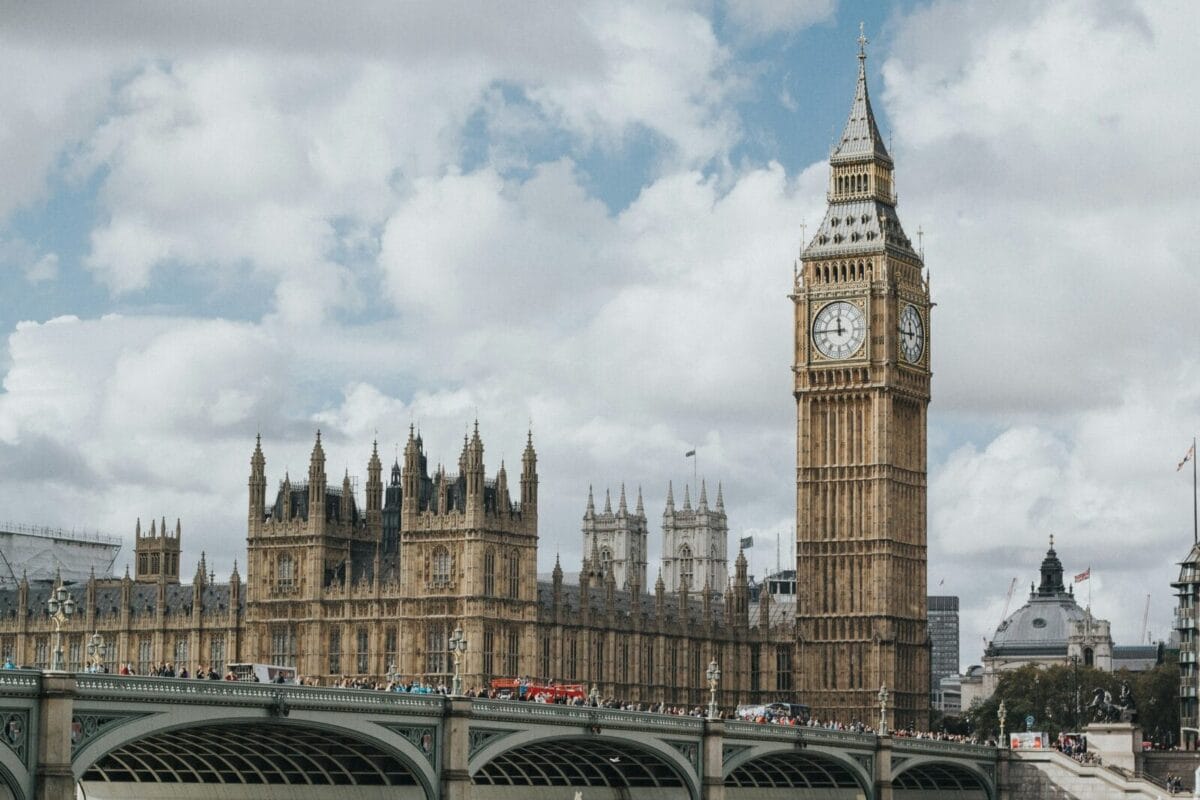This morning’s announcement from the ONS has revealed that UK headline inflation has dropped to 6.8% in the year to July 2023. Good news on the face of it perhaps – as it follows last month’s rate of 7.8% – and means the second month in a row that the rate has dropped. But, troublesome core inflation has remained at 6.9% for the month, indicating that the UK’s battle with the ravages of inflation is far from over.
Top of the concerns list is that the latest inflation data isn’t enough to prevent the Bank of England’s MPC hiking base rates again at their September meeting from the current rate of 5.25% which was set earlier this month, to 5.5%. The fragile state of the economy and the cost of living crisis are having a major impact for financial advisers and investment managers too.
Below we share some of the reactions we have received this morning, to this latest inflation data and what it’s impacts will mean:
David Henry, investment manager at Quilter Cheviot comments:“With inflation falling to 6.8% and yesterday’s data showing wages increased by nearly 8% over the past year, the cost of living crisis may finally be beginning to wane. Households are still under immense pressures however, and inflation isn’t going to fall dramatically, but it will be pleasing to millions to see their take home pay now seeming to keep up with inflation. However, the headline numbers only tell a fraction of the story. Food prices continue to hit consumers, while core inflation is refusing to budge substantially. With the surprise in earnings growth added in and the economy holding up in the face of adversity, the Bank of England will probably determine that more interest rate rises are required to get the job done.”
“However, the BoE is reaching a tricky point now. Interest rates have been rising for more than 18 months and this is when they traditionally begin to bite on the economy. As a result, given the speed in which rates have reached more than 5%, the toll on the economy in the next few months could be quite severe and may be enough to tip the country into a recession. With the Federal Reserve now increasingly looking like they may now pause interest rates rises, this could naturally feed into the BoE’s thinking given how they have seemingly followed in the Fed’s footsteps in the past. But with inflation remaining especially elevated, and this being the primary reason for rate rises to date, the BoE is left in somewhat of a no-win situation.”
Marc O’Sullivan, Head of Investments at financial mutual Wesleyan said: “While inflation is still too high, a clear downward trajectory is emerging with inflation forecasts starting to cool. The big question now is what this means for interest rates.
“Monetary policy operates with a long time-lag so we believe the Bank of England will eventually pause its sequence of consecutive rate rises in the coming months, not least to monitor the impact that higher interest rates will be having on the consumer and therefore the economy.
“From the perspective of investors, higher interest rates make cash savings an attractive option. However, anyone saving for the long term should look at building a diversified portfolio with exposure to assets that are better placed to beat inflation – something that cash rarely does.”
Jonny Black, Chief Commercial and Strategy Officer at abrdn, Adviser, said: “Falling inflation and high interest rates will mean some clients will be wanting to review whether their portfolio composition is still right for them.
“Circumstances are going to dictate individual actions. But what’s going to be common to every case is the value of an advisers’ re-assurance.
“In what is still a complex economic and financial environment, ‘good’ advice will be about building clients’ confidence that their strategy puts them in the best position they can be given everything we know about what’s driving inflation and where it’s likely to go.”
Lily Megson, Policy Director at My Pension Expert said: “Inflation falling and wages rising will bring relief to Britons. But it might only be temporary. Indeed, inflation’s persistent grip on people’s finances is not set to loosen any time soon. Hardly a settling prospect for those in, or approaching, retirement.
“Whilst retirees can enjoy some reassurance that their state pension will increase in line with inflation, thanks to the triple lock, the Government cannot assume that this will fix the UK’s pension issues. More can and must be done to provide those approaching or in retirement with the necessary support to help them understand exactly how they can protect their pension from wider economic circumstances. Improving access to information via prioritising the pension dashboard, or improving access to advice, would be a strong starting point.
“The approach of just “waiting until inflation comes under control” is not fit for purpose. The Government must look to other areas of support to help people better understand their financial circumstances. Arguably, the better people feel more supported in their financial situation, the more in control they will feel of their situation – a feeling many people will value during this economically volatile period.”
Mohsin Rashid, CEO of ZIPZERO, said: “While this inflationary burden may have slightly eased, its weight continues to cripple millions of Briton’s finances.
“Everyday essentials likes clothing and groceries continue to get more and more expensive. And while savvy cost-cutting hacks like bargain hunting and using retail loyalty benefits will certainly lighten the load, they can ultimately only go so far.
“Let us not become complacent: now is the time to dish out the support needed to pull consumers back from the cliff’s edge. Support is urgently needed from businesses and the government alike. For businesses – namely retailers – that means cutting prices where possible and rewarding customer loyalty. For the government, cracking down on any instances of ‘greedflation’ is a must.”
Andy Mielczarek, Founder and CEO of SmartSave, a Chetwood Financial company, said: “Although the picture appears to be improving in certain corners of the economy, there is still a long way to go before inflation returns to manageable levels. Rising wages are finally easing pressure on some UK households, but savers could be in for a shock next month if inflation figures rise again.
“With further interest rates hikes already in the pipeline, savers should be mindful of the fact that banks still aren’t passing on every increase to their customers in the form of better rates. Those who haven’t checked their current rate would be wise to do so, as they may need to act quickly to lock in a better deal.
“Rates on easy-access accounts are rising, but they are still lacklustre compared to fixed-term products. Many one-year fixes are currently topping the base rate providing greater returns for those who don’t need immediate access to cash.”
Jatin Ondhia, CEO of Shojin, said: “It’s good news today, but there are strong rumours that next month’s data will show a rise in inflation once again. This story is from over – Rishi Sunak and Jeremy Hunt’s target of bringing inflation under 5% by the end of the year is looking increasingly out of reach, and that will have implications on consumers, investors, businesses and the financial markets.
“Inflation remains too high, and if indeed it does start to rise again in the final months of the year, we have to expect the Bank of England to come hard with more interest rates hikes. As borrowing becomes more expensive, this will inevitably further impact house prices and property development. For investors, meanwhile, it is crucial they assess how well positioned their portfolios are to deliver returns amid stickier-than-expected inflation.
“Diversification will likely remain a watchword for investors. Predicting quite where interest rates and inflation will go in the months to come is difficult, so many people will opt to diversify their investments so they are not tied too closely to any particularly market forecasts.”
Rob Clarry, Investment Strategist at wealth manager Evelyn Partners, said:
“The ONS report showed continued progress on inflation front as CPI came in roughly as expected and significantly down on last month. Despite some concerns over strong wage growth data yesterday, recent economic data has been largely favourable for the Bank of England and its policymakers.
“Last week, both GDP and industrial production surprised to the upside, highlighting that the economy remains resilient to higher interest rates, for the time being. This week’s labour market data also showed some promise: the unemployment rate increased from 4% to 4.2% and the number of available vacancies continued to fall. These signs of lower labour demand should help reduce domestic-led inflationary pressures. The wage data was more concerning – with an annual 8.2% gain in three months to June, including bonuses. But a chunk of this can be attributed one-off factors in the health and social care sector. Next month’s earnings data will be a crucial watch to see whether this trend continues.
“The easing in the annual inflation rate was mainly driven by falling gas and electricity prices. This was due to the lowering of the Ofgem price cap in July. Food and non-alcoholic beverage prices rose by 0.1% between June and July 2023, compared with a rise of 2.3% between the same two months a year ago. These declines were partially offset by upward effects coming from hotels and passenger transport by air.
“Despite the improvement seen in the headline figure, core inflation – which better captures domestic inflationary pressures – remained flat at 6.9%. Similarly, services inflation, which Governor Andrew Bailey is watching closely, accelerated to 7.4% from 7.2%. The BoE will want to see more progress on these measures before they feel confident enough to pause their rate hiking cycle.
“With UK terminal rate expectations having declined from around 6.4% to 5.8% over the last month, we saw expectations edge higher to 5.9% following yesterday’s wage data. Sterling posted modest gains following the CPI report. Looking ahead to the BoE’s next meeting on 21st September, markets expect another 25-bps hike, although much will depend on the CPI and labour market reports for August.”
James Lynch, fixed income manager at Aegon Asset Management, said:
“We have recently had a big data week in the UK, firstly GDP which was stronger than expected due to the manufacturing sector which raised a few eyebrows, yesterday we had employment data which showed even as the labour market is loosening (unemployment rate has risen from 3.5% to 4.2% since last year) wages are still proving to be too strong from the Bank of England’s liking and today was inflation.
“The inflation print this morning was broadly in line with market and BoE expectations. The headline rate of inflation fell from 7.9% to 6.8%. According to the ONS the falling gas and electricity prices provided the largest downward contributions and hotels and air fares were the largest upward contributors to the print. The services component therefore which gets a lot of attention actually rose from 7.2% to 7.4%.
“This along with yesterday’s wage data will mean if there was a BoE meeting with only this information another hike of policy rate of 25bps would have been on the cards. We do however have another round of employment and inflation data to look forward to before the next meeting on the 21st September, and this will decide the size of hike, but for now 25bps looks the most likely option.”
Dean Butler, Managing Director for Retail Direct at Standard Life, part of Phoenix Group, said:
“The showdown between inflation and wage growth to determine which will dictate the weekly pension of millions from next April has taken a twist. The odds are now firmly in the favour of wage growth given the strength of this week’s figures and the concurrent fall of CPI to 6.8%.
“Yesterday’s ONS average wage figure of 8.2% signifies some positive news for struggling UK workers and pensioners. However, if the trend continues into next month and earnings do end up boosting next year’s State Pension, even as inflation falls, there’s likely to be heightened debate around the long-term affordability of the triple lock – and by extension, the State Pension.
“The State Pension currently accounts for around £124bn of government spending* so if it rises by 8.2% from next April, that will take the cost to just over £134bn. It’s recently been reported that this would make it more expensive than the day to day budgets of the Department for Education, Home Office and Ministry of Defence combined**.
“Of course, there are a number of variables at play and forecasters haven’t ruled out the possibility of inflation rising slightly again before it falls. Whatever the outcome, the long-term consequences on the triple lock will depend on the duration of both high inflation and high average wage growth. While the Government put a pause on State Pension reform earlier this year, and are unlikely to review this in the short term, consistent upwards pressure from either angle could force the Government to reconsider.”
Danni Hewson, head of financial analysis at AJ Bell, said:
“Whilst the latest headline inflation numbers have finally followed the Bank of England’s repeatedly re-written script, there will be little cause for celebration in the hallowed halls of Threadneedle Street. The introduction of the new energy price cap, which reflects falling gas and electricity prices, was always going to impact July’s numbers and has been primarily responsible for the significant fall in the headline rate.
“Households will also be relieved to see the rate at which food prices are rising has continued to slow, with some staples on supermarket shelves actually costing less than they did earlier in the year. The price of stuff is falling, and the latest producer prices suggest that trend will only accelerate as we head towards the back end of the year.
“And with wage growth of 7.8% people should start to feel the benefit in their pockets as the worst of the cost-of-living crisis seems to be drawing to a close. But this is a decidedly cup half full moment. Firstly, inflation is still significantly above that two percent target and even if it is cooling off faster than a sun burnt Brit diving into a hotel pool, prices are not falling, they’re just not rising as fast as they have been.
“Then there are the secondary effects that have indeed become embedded in the UK economy. Wage increases and price pressures have forced up service costs and that’s weaving its own nasty spell on core inflation. And it’s the core figure that will keep pressure on the Bank of England to keep raising interest rates until the sticky tendrils have been eradicated like weeds denied water.
“Today’s figure does buy the government a bit of breathing space and it seems Rishi Sunak’s five percent target is now achievable. But there remains a question for many families facing the prospect of spiralling mortgage costs – is the new pain worse than that which is being cured?”
Steven Cameron, Pensions Director at Aegon, said:
“With earnings growth rising and the headline rate of inflation falling, the stakes are high for next year’s state pension triple lock. If earnings growth next month stays at the latest figure of 8.2%, state pensioners will be guaranteed this level of increase next April. This is now 1.3% above the latest inflation figure of 6.9% and if the Government achieves its plans, could be well above the ruling inflation rate when it comes into payment next April.
“But with so much volatility, the state pension triple lock has become quite the roller coaster, so it’s time to ‘hold onto your hats’ for a couple of months. The final earnings component will be announced next month and the final inflation figure in October. But after a double digit 10.1% increase in April 2023, state pensioners could be in for an inflation busting boost in April 2024.”
Rachel Winter, Partner at Killik & Co, said:
“This fifth consecutive month of falling inflation will lead to a sigh of relief for many, particularly as it may stop the Bank of England opting for another rate hike in September.
“While it’s great to seeing inflation coming down, it remains above the rate of interest being paid on savings accounts, and therefore cash savings continue to be eroded in real terms. Those in the fortunate position of having excess savings should consider investing in assets that can generate a greater or more tax-efficient return than cash.”














